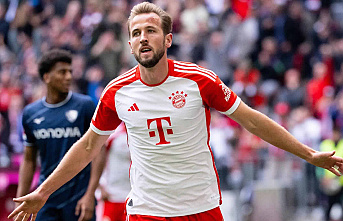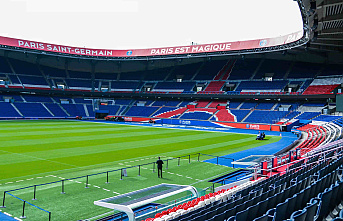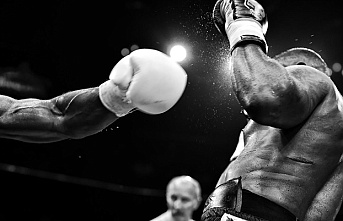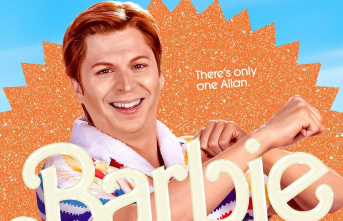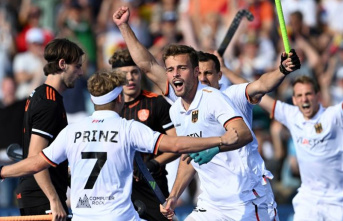Many of these interconnectednesses are on full display at Eugene, a college town that was home to Nike and which underwrites almost every aspect of University of Oregon's sporting life. The university hosts the track and field Olympic trials this week. Next year, the sport will host the world championships -- the largest event in track this side the Olympics.
Although Nike is often scrutinized as any market leader, its control over this sport has been tested over many years. This is both because of its dominant position in sponsorships with top track names and how it is perceived and criticized by its most passionate fans.
Gender equity disputes have resulted in the departure of many high-profile women runners including Allyson Felix, a nine-time Olympic medalist. A complex doping case involving Alberto Salazar (Nike's most prominent coach) continues to play out at the Court of Arbitration for Sport. Nike's role developing new boundary-pushing technology for long distance running shoes has drawn a lot of attention.
Almost every major sporting organization and executive -- including USA Track and Field and Vin Lananna, its president, and Sebastian Coe, World Athletics president and former USATF head Craig Masback - has a strong connection to Nike.
Kellie McElhaney, who is a Cal-Berkeley professor about diversity, equity, and inclusion in the corporate world, said, "You think about what they're supporting -- jobs, children, futures. It's a difficult situation because, yes. They are doing good things." It's dangerous to have an organization that is so dependent on one source, be it a person or a company.
The best example of the interdependence between Nike and its running partners might be the $250 million sponsorship deal Nike signed with USA Track and Field in 2014. The deal was widely criticised in some corners. Some felt it gave Nike too much control over the sport. USATF CEO Max Siegel was criticized for underselling the track's potential growth with an arrangement that spans 2017-2040.
Siegel insists that it placed the largest U.S. Olympic sports organization on solid financial footing over the long-term. The Nike deal was a major reason why USATF remained stable during the COVID-19 pandemic and other U.S. Olympic sport organizations were unable to compete, with some even going bankrupt.
Siegel doesn't believe USATF should be dependent on its top sponsor.
Siegel stated that there has been much discussion over the years about whether or not they have any influence on our decisions. They handle their own matters because we are an independent organization. They don't discuss internal matters with us."
The USATF-Nike relationship came under scrutiny in 2019 after Nike was criticized for its policy of reducing the salaries of female athletes who became pregnant.
Felix and Alysia Montano, two high-profile runners, made public details about Nike deals that lowered their earnings after they had children.
Nike has changed its contract terms. It had previously waived performance reductions for twelve months in 2018. It extended the policy to include six additional months a year later.
"We want it to be clear that we support females as they decide how best to be great mothers and great athletes," Sandra Carreon-John, spokesperson for Nike, said.
For some, however, it was too late.
Felix stated that when he was at Nike, it was "family this, family that", and this was the Nike family in a recent interview with The New York Times. "You get the feeling that it's true, but then you see the opposite side, which is completely different."
Felix, who is running in a spike designed by the company, announced this week that she will be starting Saysh. After what they called discriminatory or insulting business practices, other female runners like Tianna Bartoletta, Colleen Quigley and Colleen Quigley have also quit Nike.
Quigley stated in a podcast that Nike was trying to offer him less than they did when I graduated college. It was a slap in my face.
Yet, Nike sponsors a wide range of women. Track and field includes Elise Cranny and Vashti Cunningham, who all won U.S. titles as well as trips to the Olympics. Nike also employs two of the most prominent female tennis players in the world, Serena Williams (tennis) and Naomi Osaka (tennis).
An understated, powerful commercial featuring Colin Kaepernick won the company awards. It was a great example of how to get at the heart of current conversations about racial justice and social justice in the United States.
While discussions in the area of equity and social justice have been successful, the company has faced a new kind of crisis. The world champion coach Salazar, whose team was sponsored by Nike, was expelled from the championships two summers ago after it was revealed that he had been banned for four years from doping.
Although there was no evidence to suggest that Salazar's methods were influenced by company executives, pushing every rule beyond its limits and sometimes cheating beyond the limit, there were some unflattering details in emails between Salazar and Mark Parker, the Nike CEO, which were exchanged after Parker retired.
Salazar's Nike Oregon Project team has since been disbanded. His case is still pending in appeal and a decision by the Court of Arbitration for Sport is expected soon. This news will rehash the details of Nike's involvement in one of the most scandalous doping cases in sport history -- not the flattering headlines that industry leaders seek as the Olympics approach.
Carreon John stated that "we support Alberto's decision to appeal" and that they wish him the best of the due process. "Nike does NOT condone any form of prohibited substances." "
Salazar wasn't the only prominent leader on Nike.
Coe was vice president of World Athletics in 2015 and paid ambassador for Nike. This relationship was questioned when the Federation awarded the 2021 World Championships to Eugene (which will now take place in 2022). The Nike brand is already embedded throughout Eugene without the need for a bidding process.
Lananna, the current president of USATF had ties with Nike when he headed the Eugene bid effort.
Coe was elected president in 2015. He ended his Nike deal. Former USATF chair Steve Miller was also a Nike marketing executive.
Coe stated that he doesn't want to discuss individual problems within companies, as he is well-versed in the organization and knows enough to handle any challenges. He spoke last weekend in Eugene where he was participating in trials. But I think that companies like Nike have had a positive impact on our sport.
This impact has been greater than anywhere else, except for the main subject of shoes.
Bowerman and Phil Knight founded the company in 1964. The company was a leader due to its core business of promoting innovation that helps people run faster.
A new shoe design was created in 2016 thanks to recent technological advances. This shoe design slowed down the time taken for distance races and revolutionized the running world. World Athletics' Vaporfly shoe inspired Nike to invest heavily in a study to determine what constitutes a legal shoe for distance running.
The best example of the interconnectedness between shoe companies, the running community and the Olympics was the February 29, 2020 vignette.
Masback, a former USATF CEO and elite runner, was an analyst for NBC during the Olympic trials for marathon. When asked about his opinions on the shoes, Masback revealed that he was a Nike marketing executive. Then, he continued to defend Nike's latest technology.
It's hard to imagine him as objective observer. It's difficult for anyone involved in track to remain objective about Nike, given the many tendrils it has embedded throughout the running industry over the years.
McElhaney, a diversity and equity professor, said that everyone likes to talk about big companies like Nike like they're a monolith. It is actually a collection or people, and there is no one person who is perfect, 100 percent good, or 100 per cent bad. The same goes for companies. They aren't 100 percent perfect, but they aren't 100 percent bad."


